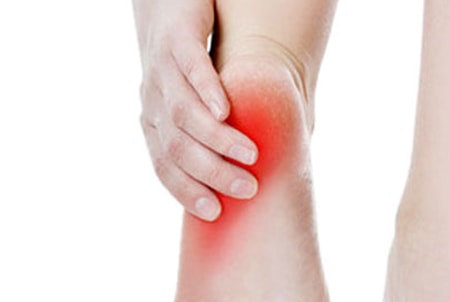We provide the best foot and ankle care at the comfort of your home
throughout Chicagoland of Cook, Kendall, Will, Lake, Kane, DuPage, McHenry counties , we will see You within 24-48 hrs!
We speak English, Spanish, Polish and Russian.

HEEL PAIN
What causes heel pain?
Heel pain is commonly the result of a condition referred to as plantar fasciitis which is also known as heel spur syndrome. Additional factors can cause heel pain as well including arthritis, nerve irritation, tendonitis, a stress fracture, loss of fat in the heel, bursitis, or very occasionally a cyst. To identify the underlying cause, the podiatric physician will assess the foot and ankle thoroughly. Most conditions can be treated with at-home strategies such as stretching, splints, and icing as well as using padding, orthotics, walking casts, certain medications such as anti-inflammatories, and possible injections with options of homeopathic, steroids and plasma PRPM . Avoiding going barefoot and wearing the appropriate shoes can also help greatly. In extreme cases, surgery may be needed, that also can be conventional with regular incision length as well as MINIMAL INCISION TECHNIQUE
What is Plantar fasciitis?
Plantar fasciitis is a painful condition which occurs when the plantar fascia, a strong band of connective tissue which goes from the bottom of the foot to the heel, becomes swollen and aggravated. Pain is usually felt along the underside of the foot and more often under the heel and is worse in the morning with the first step as at night that ligament shrinks and it becomes short and thick . It becomes inflamed and painful again after walking long day . Pain also happens after following periods of continued sitting. The discomfort and stiffness can seem to go away after the foot is used , but not for long time, it comes back after another round of inactivity. Plantar fasciitis can be addressed with gentle stretching exercises and massage to relieve swelling and increase flexibility and strength in the ligament itself. In some instances, injections of anti-inflammatory medications into the ligament can be prescribed when stretching, and massage do not provide relief.
How is heel pain treated?
Treatment will usually start with physical therapy and at-home strategies for podiatry housecall visits. Options will include:
Avoid being barefoot- this can relieve pressure and strain on the ligament
Icing- employ an ice pack for 20 minutes 3-4 times a day to reduce swelling
Shoe modifications- wear shoes with optimal arch support and a slightly raised heel
Limit specific activities- minimize activities which can strain the fascia
Medications- NSAIDs such as ibuprofen can minimize swelling and pain as well
Padding- pads in shoes and straps can support the ankle can lessen strain
Orthotic devices- custom devices can correct structural issues ,support arch of foot and take of body weight from Plantar fascia ligament. Night Splints- wearing a splint while sleeping can maintain a stretch over the course of the night and lessen morning pain.
Walking cast- a cast can keep the foot immobile for a while to allow it heal
Injections- HOMEOPATHIC PLASMA PRP corticosteroid injections can reduce pain and inflammation
Surgery can be used to repair a bone growth if one is present.
Please call us 312 998 0974 today we can help you or your close one in need of foot doctor care to receive it in the comfort of your home, please see Dr Vadim Goshko video, to know who would be qualified by Medicare or private insurances for housecalls. Request an appointment here






